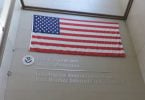Recently we discussed what can and should be done to protect airline passengers from unruly passengers who may be disruptive or potentially dangerous. We also discussed over-reacting to threats, perceived or real, and the potential violation of due process rights. In this article we examine one method of controlling potentially dangerous airline passengers, the “No-Fly List”, and a recent court case [Latif v. Holder, 2014 WL 2871346 (2014)] which addressed the constitutionality of certain aspects of the administration of the No-Fly List.
The Claimants
“Plaintiffs are citizens and lawful permanent residents of the United States (including four veterans of the United States Armed Forces) who were not allowed to board flights to or from the United States or over United States airspace. Plaintiffs believe they were denied boarding because they are on the No-Fly List, a government terrorist watch list of individuals who are prohibited from boarding commercial flights that will pass through or over United States airspace. Federal and/or local government officials told some Plaintiffs that they are on the No-Fly List. Each Plaintiff submitted applications for redress through the Department of Homeland Security Traveler Redress Inquiry Program (DHS TRIP). Despite Plaintiffs’ requests to officials and agencies for explanations as to why they were not permitted to board flights, explanations have not been provided and Plaintiffs do not know whether they will be permitted to fly in the future”.
The Due Process Lawsuit
The Plaintiffs brought a lawsuit against the United States Attorney General and others asserting due process violations such as violating their Fifth Amendment rights to procedural due process “because Defendants have not given Plaintiffs any post-deprivation notice nor any meaningful opportunity to contest their continued inclusion on the No-Fly List”. In addition the Plaintiffs asserted that the Defendants’ actions “have been arbitrary and capricious and constitute ‘unlawful agency action’ in violation of the Administrative Procedure Act (APA)”.
Who Is In Charge?
“The Federal Bureau of Investigation (FBI), which administers the Terrorist Screening Center (TSC) develops and maintains the federal government’s consolidated Terrorist Screening Database (TSDB or sometimes referred to as ‘the watch list’). The No-Fly list is a subset of the TSDB”.
How Is The No-Fly List Created?
“TSC provides the No-Fly List to TSA, a component of the Department of Homeland Security (DHS), for use in pre-screening airline passengers. TSC receives nominations for inclusion in the TSDB and generally accepts those nominations on a showing of ‘reasonable suspicion’ that the individuals are known or suspected terrorists based on the totality of the information. TSC defines its reasonable-suspicion standard as requiring ‘articulable facts which, taken together with rational inferences, reasonably warrant the determination that an individual ‘is known or suspected to be, or has been engaged in conduct constituting, in preparation for, in aid of or related to, terrorism or terrorist activities’”.
Ask But Don’t Expect An Answer
The DHS TRIP “is a mechanism available for individuals to seek redress for any travel-related screening issues experienced at airports or while crossing United States borders; i.e., denial of or delayed airline boarding, denial of or delayed entry into or exit from the United States, or continuous referral for additional (secondary) screening”. Travelers may file a Traveler Inquiry Form to DHS TRIP and register a complaint which is the subject of review by DHS and/or TSC and leads to a determination by DHS TRIP which “neither confirms nor denies that the complainant is…on the No-Fly List and does not provide any further details about why the complainant may or may not be…on the No-Fly List…Determination letters…do not provide assurances about the complainant’s ability to undertake future travel…DHS does not…give any explanation for inclusion on such a list at any point in the available administrative process. Thus, the complainant does not have an opportunity to contest or knowingly to offer corrections to the record on which any such determination may be based”.
Right To International Travel By Air
In discussing the Plaintiffs procedural due-process claim the Court noted that “‘[T]he [Supreme] Court has consistently treated the right to International travel as a liberty interest that is protected by the Due Process Clause of the Fifth Amendment’”. In rejecting the defendant’s arguments “that international air travel is a mere convenience” the Court held that “in light of the realities of our modern world (such) an argument ignores the numerous reasons that an individual may have for wanting or needing to travel overseas quickly such as the birth of a child, the death of a loved one, a business opportunity or a religious obligation”. In finding for the Plaintiffs that Court held that “placement on the No-Fly List is a significant impediment to international travel…Accordingly, the Court concludes that Plaintiffs have constitutionally-protected liberty interests in traveling internationally by air, which are significantly affected by being placed on the No-Fly List…Plaintiffs’ inclusion on the No-Fly List constitutes a significant deprivation of their liberty interests in international travel”.
Inability To Correct Factual Errors
Court also noted that the DHS TRIP process does not provide “travelers with reasons for their inclusion on the List. ‘Without knowledge of a charge, even simple factual errors may go uncorrected despite potentially easy, ready and persuasive explanations’…In summary…the DHS TRIP process presently carries with it a high risk of erroneous deprivation in light of the low evidentiary standard required for placement on the No-Fly List together with the lack of a meaningful opportunity for individuals on the No-Fly List to provide exculpatory evidence in an effort to be taken off the List…the Court finds additional procedural safeguards would have significant ;probative value in ensuring that individuals are not erroneously deprived of their constitutionally-protected liberty interests”.
New Procedures Required
The Court held that “Defendants must provide a new process that satisfies the constitutional requirements of due process (and) Defendants (and not the Court) must fashion new procedures that provide Plaintiffs with the requisite due process described herein without jeopardizing national security…due process requires Defendants to provide Plaintiffs…with notice regarding their status on the No-Fly List and the reasons for placement of that List…such notice must be reasonably calculated to permit each Plaintiff to submit evidence relevant to the reasons for their respective inclusions on the No-Fly List…Defendants may choose to provide Plaintiffs with unclassified summaries of the reasons for their respective placement on the No-Fly List or disclose the classified reasons to properly-cleared counsel”.
Conclusion
As we noted in our earlier article on unruly passengers, the ongoing process of balancing security concerns which seek to insure airline passenger safety with the due process rights of individuals is a difficult task.
The author, Justice Dickerson, been writing about Travel Law for 38 years including his annually-updated law books, Travel Law, Law Journal Press (2014), and Litigating International Torts in U.S. Courts, Thomson Reuters WestLaw (2014), and over 300 legal articles many of which are available at www.nycourts.gov/courts/9jd/taxcertatd.shtml .
This article may not be reproduced without the permission of Thomas A. Dickerson.
(eTN): Travel law: Getting on and off the “No-Fly List” | re-post license | post content






















